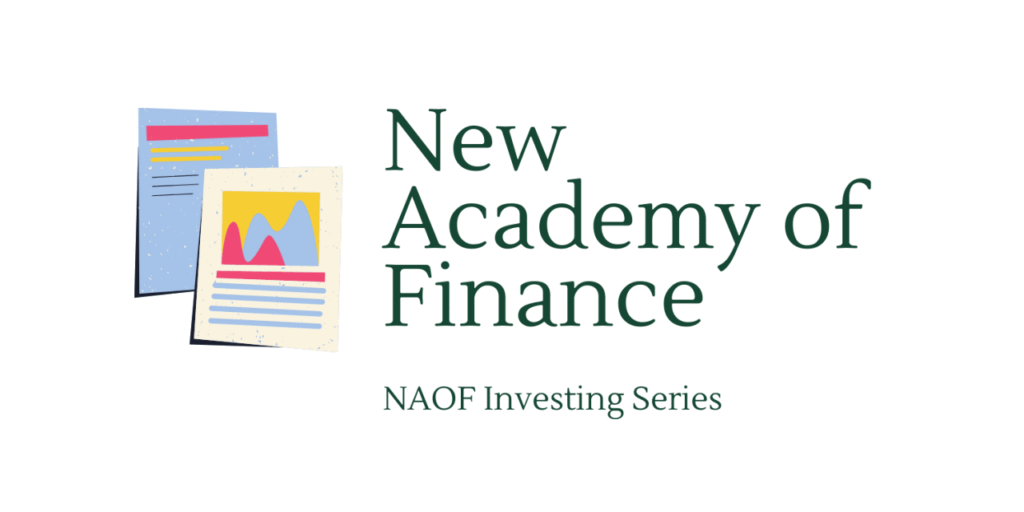Table of Contents
Invest or Save? A common dilemma
Whether you have been working diligently on your finances for years or just getting started, it can be difficult to choose between saving and investing.
Most people choose to save because it is seen as the “safer” route, one where your account size will not decrease if you choose not to withdraw your fund. However, it is also one whereby you should not expect your account size to grow dramatically as a result of the current low-interest rates environment.
Investing on the other hand is often seen as “gambling” for those who are not familiar with the workings of the stock market. You might have gotten your “hands burnt” from investing in penny stocks recommended as a “sure-win” hot tip by your friendly neighbor before and thus swore off investing for good. However, note that buying high-risk penny counters is not investing, it is speculating! The latter should not be seen as the norm when it comes to growing your wealth “safely” over a prolonged horizon.
With that understanding, here are 5 compelling reasons why you should invest instead of save.
1. Meet Long-Term Financial Goals

Everyone has financial goals – be it buying a house, a car, financing your children’s education, or even starting the business you have always dreamed of. Investing can help you reach these goals.
If you put your money in investments that yield a higher rate of return than a savings account, you will be earning much more money in the long term, and within a faster period to boot. This could mean an early retirement and more time for you to pursue the things you want to do in life.
While investing with a long-term horizon is the way to go in achieving many of your financial goals, a notion which I often termed as “paying-yourself-first”, it is critical that you have already set aside your “emergency bucket” before starting your investing journey.
Life is unpredictable and in order to make lemonades out of the lemons which we are handed, one needs to be well-prepared for any short-term “hiccups” that might throw our financial well-being into a tailspin.
Don’t be caught in a scenario where you are forced to liquidate your investment portfolio (particularly if they are in the red) because you did not have an emergency fund nicely tucked away to meet any short-term emergencies.
We will cover more of this in Point 3.
2. The Insidious Effect Of Inflation

Scenario: You walk into a famous local bakery chain and find that the price of their signature floss bun has jumped by almost 30% since your last visit.
On the way to work, you grab your favorite coffee but realize that a few more cents were swiped from your credit card than usual. What is going on?
The big businesses are not out to get you – this is simply a natural economic process known as inflation.
In Singapore, the expected rate of inflation is estimated to be 2% per year. This means that the value of your hard-earned money erodes by 2% every year. In other words, if you save $10,000 now, in 10 years, that amount will buy you fewer things because of the 20% loss in value.
If you take the ordinary approach of making money and then just saving it, it is going to hurt you financially in the long run. Take a look at this image for visualization:

As you can see, a one-dollar note from 1913 is worth next to nothing now.
Inflation eats into your money, slowly at first, but with time at its side, the effect compounds until one day you realize the wealth you have built over the years has been gradually stolen away.
At the end of the day, it is not about the money you make. You can make a fortune and burn it all down if you do not understand how money works. According to the National Endowment for Financial Education, about 70% of people who win a lottery or receive a large windfall go bankrupt within a few years.
Many rich and famous people like Michael Jackson and Mike Tyson also ended up broke in their lifetimes.
Make your money work smarter, not harder.
Additional Reading: Net Worth by Age. How Much Should you have to Retire Well?
3. Having A Savings Account Is Not Enough
To prevent inflation from chipping away at your earnings, a common strategy is to put it in a savings account under a bank. After all, you can earn stable returns from interest rates.
But did you know that the value of money left in a savings account may also erode over time?
In today’s climate of a global recession, interest rates are being kept to a bare minimum to stimulate the economy. By keeping interest rates low, loans become more affordable, encouraging borrowing among businesses and consumers. This drives the growth of companies and directs more money into the markets, aiding economic recovery.
On the flip side of the coin, what lower interest rates mean to everyday bank customers is a lower rate of return on our savings. Amidst the COVID-19 outbreak, local banks have announced further cuts in already-low interest rates on their savings accounts:

Assuming Singapore’s median interest rate hovers around 0.65% p.a., and that the trend of lower interest rates is going to extrapolate, it is going to be hard to beat inflation by simply putting your money in a savings account.
When you do that, your money will most likely sit idle, or perhaps even dwindle.
That is not to say that saving is not a virtue. But in our times, it is only part of the story.
Smart savers understand the difference between savings and investments. Start by building an emergency fund within a savings account or even through a fixed deposit account. But after building short-term easy-to-access savings, putting your money in investments offers long-term advantages that can help you beat inflation and earn higher returns.
Note: While investing is a sound financial strategy, you should avoid investing all your savings, especially those you intend to use within the next few months. Investing should ideally be a long-term approach.
The table below illustrates a quick summary of the pros and cons of saving and investing which one should be aware of.

4. The Magic Of Compounding
Many people underestimate the sheer amount of wealth you can build with proper investment. The often omitted truth is, it does not matter how little you start with. In investment, time is a more potent catalyst than capital.
If I told you that $5,000 can multiply 20-fold and turn into $100,000 after 40 years, it may sound like a ridiculous scam. Yet with easy-to-understand, simple investing strategies, and compound interest working at your side, this could be the reality for you.
How to use compound interest to your advantage
The power of compound interest is one of the most useful forces in finance. With it, anyone can create large sums with little initial capital, as long as you start NOW.
Take a look at this comparison. The yellow curve represents an investor who starts early, at the age of 25; the green curve represents an investor who only begins at the age of 35.

By the time they are both 65 years old, the second investor accumulates less than half the wealth of the first investor by starting 10 years later. This is the cost of waiting, a cost that quickly adds up and haunts you when you become older.
But both of these investors would be MUCH better off than someone who does not invest at all. For that guy, the curve would be flat. The moral of the story is: it doesn’t matter what age you are – more time is on your side if you start thinking about retirement today.
Disclaimer: The examples in this article are theoretical. The chart does not represent the returns of any particular investment and should not be used to predict performance. It does not include transaction costs, fees, or expenses associated with the account or any individual investment made in the account.
With compound interest, the math is exponential – this is why its jaw-dropping effect unveils itself more drastically as time passes.
Since 1970, the average inflation-adjusted return of the stock market is 8%/annum. Using that number in our calculations, an investment of $2,000 will increase to almost $3,000 in 5 years. Sounds pretty average? In 10 years though, your investment will double from $2,000 to $4000. In 20 years, it will multiply 5 times to almost $10,000; in 30 years – 10 times to $20,000. If you can wait for 40 years, that initial $2,000 will have become $40,000.
And all that assuming you only made a one-time contribution of $2000. Imagine what you can build up if you fork out $2000 every year, for 30-40 years.
Research has shown that by investing just $400 per month into the stock market for 15 years, starting at age 25, there is a good chance you can become a millionaire by age 65 and be ahead of 90% of the population.
Additional Reading: Let the power of compound interest help you reach millionaire status
The easiest way to get started investing
The sooner you invest your money, the more you’ll benefit from compound interest. So where should you invest? The simplest starting point is to use an automated Regular Savings Plan.
One of the safest options in Singapore is to start by opening a low-cost Regular Savings Plan (RSP) ETF with FSMOne.
Additional Reading: Step-by-step guide to open your FSMOne account and start trading
5. Be Part Of Something Greater Than Yourself

Way back in time, stock exchanges were invented for people to make investments in risky sea voyages that brought back fortunes from the East. To lessen the risk of a lost ship ruining their fortunes, ship owners had long been in the practice of seeking investors who would put up money for the voyage in return for a percentage of the proceeds.
Today, new ventures in the areas of technology, healthcare, and energy also need the backing of funding. Some investors like the excitement of investing in a new, cutting-edge product or service or being part of something revolutionary.
Others believe in making a change through their investments.

Whatever your reason for investing, it is much more exciting and meaningful for your choices to be a part of a venture greater than yourself. So while you are planning out your financial life, you can click on this link to find out how you can invest in what you believe in Thematic ETFs partaking in the hottest trends
Conclusion
In this article, we state 5 compelling reasons why one should invest instead of save.
The main gist is this: you can start saving early but in today’s low-interest-rate environment, saving diligently will not allow you to achieve your long-term financial goals easily. Investing, on the other hand, especially when one starts early, will allow your money to work smarter for you through the “compounding effect”, thus allowing you to achieve your long-term financial goals much easier and quicker.
However, investing should always be done with a long-term mindset, particularly for new investors just starting their investing journey. To be successful in investing, one need not be a genius like Warren Buffett. A simple solution to achieve investing success for new investors is often to “automate” the investing process and keep it simple.
NAOF Investing Series
A series of quickstart videos to get you started on investing the easy way.

The NAOF Investing Series aims to help you get started on investing the easy way.
Do Like Me on Facebook if you enjoy reading the various investment and personal finance articles at New Academy of Finance. I do post interesting articles on FB from time to time which might not be covered here in this website.
Join our Telegram broadcast: https://t.me/gemcomm
SEE OUR OTHER WRITE-UPS
- Best commodity asset of the decade and why Bitcoin might prosper in 2020
- How to prepare for a bear market. A simple 3-steps process
- Thematic ETFs partaking in the hottest trends
- Top 5 analysts of the decade and their current favorite stocks
Disclosure: The accuracy of the material found in this article cannot be guaranteed. Past performance is not an assurance of future results. This article is not to be construed as a recommendation to Buy or Sell any shares or derivative products and is solely for reference only.









